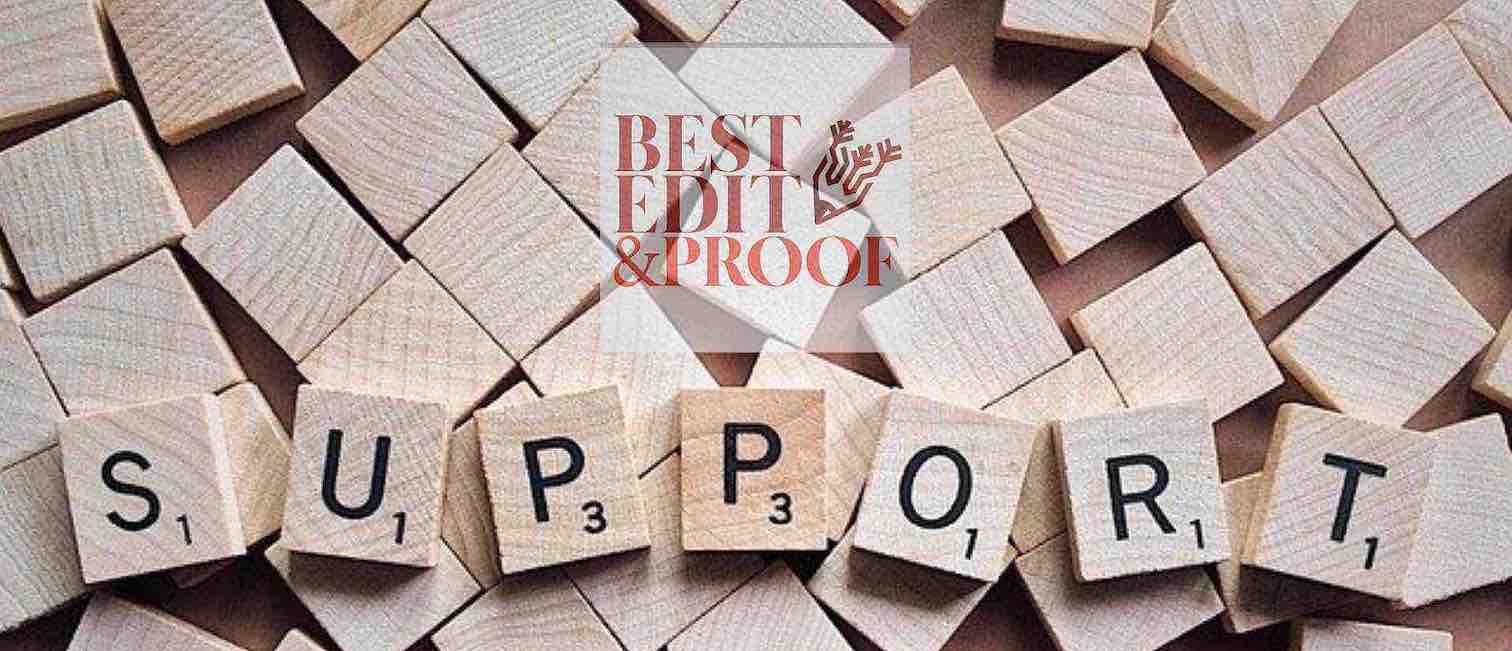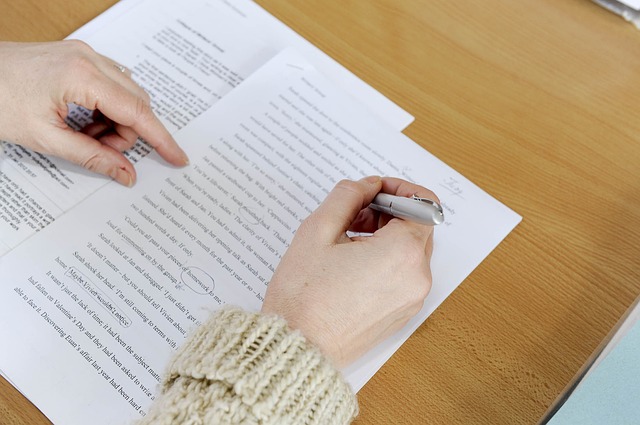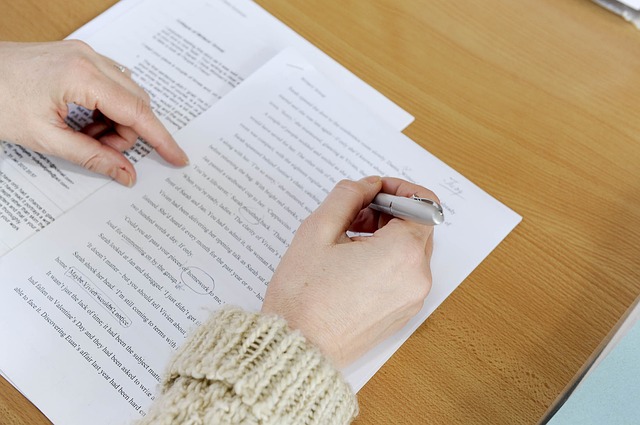Proofreading is the process of checking errors in your written content before posting or sharing it. It is the last step of writing and includes the correction of various spelling, punctuation, typos, and formatting mistakes, or inconsistencies. Whether your content is an academic paper, online article, print flyer, or job application, you need to proofread the content. As proofreading is a significant step in the entire writing process, you need to know the following 8 proofreading tips.

Proofreading is the process of checking errors in your written content before posting or sharing it. It is the last step of writing. Proofreading includes the correction of various spelling, punctuation, typos, formatting mistakes, or inconsistencies. As proofreading is a significant step in the entire writing process, you need to know certain proofreading tips. Whether your content is an academic paper, online article, print flyer, or job application, you need to proofread the content. As per your budget and skill, either hire an expert or proofread the content yourself.
Some researchers often confuse proofreading with editing. You don't have to proofread the content line by line or word by word — you need some proofreading tips to do it. Editing is a completely different process from proofreading. Editing is all about changing major structures, languages, contents, and arguments.
Proofreading aims to correct all errors in grammar, punctuation, syntax, and spelling in a manuscript. If you wish to see whether the final version of your document contains any minor errors, then you need proofreading services instead of editing services.
Editing necessitates more an extra effort from an editor than does proofreading. Our editing service will improve the academic quality of your manuscript, hence the content, overall structure, quality of findings and analysis, simplicity, and referencing.
Editing will mostly make some fundamental changes to improve the standard of the academic writing of the document. Accordingly, editors will sometimes re-write some parts of your document. This is especially important because an editing service aims to guarantee that the purposes of the document are met.
Proofreading is about changing the minor mistakes, like missing commas, punctuation, capitalization, or inconsistencies. It may be obvious that before proofreading, the content is read and edited through several stages. Thus, the content is left with only minor changes, and those changes are altered by proofreading.
Here is an analogy: An architect (like the editor) can take an old house and refurbish it by removing walls and replacing them with new materials, adding rooms, removing floors, setting up new flower gardens, and in the end, it is a newly created house with the same foundation. Then, the housing inspector (the proofreader) from the government comes along to make sure that everything is properly in place, especially details for safety precautions; he/she does not come to create anything. The proofreader’s purpose is not creative.
Whether you are writing a manuscript for a peer-reviewed journal, a graduate paper, a dissertation, a thesis, an essay, or an official email to a company, it is essential to get your work error-free. A spell checker or a Google tool might help improve the text, but it is far from the proofreading that you need. Here, proofreading gains importance.
There are four stages of editing and proofreading. Let's touch on all of them briefly.
This stage includes revising the content and making important alterations to it. The editing in this can be done by simply moving the structure and adding or removing the entire sentence. This stage is also popularly known as developmental or substantive editing.
Line editing involves the editing of short sentences, words, or phrases. The paragraphs are restructured to enhance the flow of the text.
Copy editing is simply performed to polish the sentences. It includes the correction of grammar, arguments, syntax, or consistencies effectively.
Proofreading is the stage where minor mistakes such as missed punctuation, misspelled words, and inconsistencies are required to be corrected. This is the last stage of the entire process.
To cultivate the habit of proofreading, you need to practice it in your content wisely. It is the best way to enhance your writing skills, and it increases the readability score of your content. Whether it is a business report, college paper, or even a blog, you can use certain proofreading tips and tricks.
Before rushing directly to the proofreading stage, it is important to revise and edit the content properly. Editing work narrows down some extra work. It is good to edit first so that after proofreading, you don't have to remove the entire unnecessary section. Therefore, proofread the content only when you are completely done with the editing work.
Carefully proofread the content, and after proofreading, don't simply skip to count your mistakes. Make sure you see your mistakes and remember those mistakes for the next time. Learning from your own mistakes is the best way to enhance your proofreading skill.
For example, if you see a missing comma in your content while proofreading any content, note it down. And while proofreading the next content, make sure to check out the missing commas in your content. This way, you will eventually cultivate the habit of using commas along with writing the content.
When concentrating on the words, do not ignore the importance of punctuation marks. It is one of the most important proofreading tips for academic writing.
Watch out for commas, quotation marks, apostrophes, colons, semicolons, etc. whether or not they are used correctly.
Stop at every punctuation mark to make sure you’ve used them properly.
People usually make mistakes with the apostrophe, mixing ”their” and ”they’re”, ”your”, and ”you’re”, and ”its” and ”it’s’‘ and so on. One golden rule of proofreading: Never use an apostrophe to form plurals, such as in 3’s, do’s, don’t’s, and CEO’s. The correct forms are 3s, dos, donts, and CEOs.
It is important to note that, with regard to professional proofreading or academic writing, capitalization is more than simply knowing to start names and surnames with capital letters. When it comes to proofreading, it requires more attention. Focus on the rules of capitalization is of importance for the best proofreading.
Pay attention to proper nouns, don’t forget to capitalize the names of people, places, and things that are designated as proper nouns. Check out 15 basic capitalization rules for English grammar to get more information about capitalization rules.
This may seem a bit odd to take a break from content, but it is one of the most important proofreading tips. This is because continuously going through the long paragraphs and contents, proofreading becomes boring. And in such boring situations, people tend to skip the minor mistakes.
If you are a beginner and you don't know what things to see while proofreading, you can hire an expert editor or proofreader. Alternatively, you can ask any one of your friends to simply go through and see the minor mistakes. Moreover, the expert or other person will point out the incorrect statements or any unclear sentences in a far better way.
If you want to save your time and proofread the content effectively, you can divide the content into parts. This way, you can check different parts at different times, whenever you get free time. Moreover, splitting the content will boost the efficiency and effectiveness of your proofreading.
When you have finished with the proofreading, print out the paper. You may spot several errors that you have missed on the screen.
Printing out the paper also gives you the chance to look at the paper in a different medium, that is, as a hard copy rather than in an electronic format. It also allows you to correct words.
Reading your writing aloud will also help you identify sentence flow and check for abrupt or jarring structure. It's also a good way to determine which sentences are way too long and confusing and spot places for better word choice. Reading aloud will allow you to keep yourself in the reader’s position and make up for understandable and enjoyable writing.
These proofreading tips are very useful for beginners as well as the mediocre. Apart from these, you must know the punctuation rules. As the correction of punctuation is the most significant while proofreading, you should be familiar with the usage of commas, exclamation marks, etc. Once you understand these tips and use them wisely, it will help you become a pro in proofreading.
Best Edit & Proof expert editors and proofreaders focus on offering manuscripts with proper tone, content, and style of academic writing, and also provide an upscale editing and proofreading service for you. If you consider our pieces of advice, you will witness a notable increase in the chance for your research manuscript to be accepted by the publishers. We work together as an academic writing style guide by bestowing subject-area editing and proofreading around several categorized writing styles. With the group of our expert editors, you will always find us all set to help you identify the tone and style that your manuscript needs to get a nod from the publishers.
You can also avail of our assistance if you are looking for editors who can format your manuscript, or just check on the particular styles for the formatting task as per the guidelines provided to you, e.g., APA, MLA, or Chicago/Turabian styles. Best Edit & Proof editors and proofreaders provide all sorts of academic writing help, including editing and proofreading services, using our user-friendly website, and a streamlined ordering process.
Visit our order page if you want our subject-area editors or language experts to work on your manuscript to improve its tone and style and give it a perfect academic tone and style through proper editing and proofreading. The process of submitting a paper is very easy and quick. Click here to find out how it works.
Our pricing is based on the type of service you avail of here, be it editing or proofreading. We charge on the basis of the word count of your manuscript that you submit for editing and proofreading and the turnaround time it takes to get it done. If you want to get an instant price quote for your project, copy and paste your document or enter your word count into our pricing calculator.
Contact us to get support with academic editing and proofreading. We have a 24/7 active live chat mode to offer you direct support along with qualified editors to refine and furbish your manuscript.

Follow us on Twitter, LinkedIn, Facebook, Instagram, and Medium.
For more posts, click here.
This article gives you 8 proofreading tips for effective proofreading. To give you an opportunity to practice proofreading, we have left a few spelling, punctuation, or grammatical errors in the text. See if you can spot them! If you spot the errors correctly, you will be entitled to a 10% discount.

Anything you are good at can become a business if you know what you are doing. If you are a person with good writing and editing abilities, and you have been wondering how you can turn it into a career— editing and proofreading as a business might just be your thing. If you can easily spot mistakes in writing, both grammatically and structurally, turning your skills into a business can be a great idea. Recently, there is a surge in demand for freelance editors and proofreaders, and the pay can be very generous, depending on your skills. If you are thinking of starting a business providing editing and proofreading services, this article is for you.
Continue Reading
Ever wondered how your favorite books are written, compiled, and presented to you? Of course, the writer is the captain of the ship, but there are numerous phases to how a book is compiled and published. One of the main phases is the editing and proofreading phase. That’s right — all the books that you have read to date are all edited and proofread several times before they get the final nod of approval for publication. This article discusses the process of editing and proofreading services for books. We will also focus on why editing and proofreading are important and why you should pay close attention to them.
Continue Reading
Writing a piece of work takes time. But what takes up more of an author or an editor’s time is going through the work and refining them. That is correct—editing and proofreading can take up a considerable amount of your time if you don’t know the smarter way. In this article, we will go through some effective strategies used by professional editors and proofreaders to get their work done faster and more accurately. not want to mess it up, and neither do you want to spend too much time on it.
Continue Reading
No matter what you are working on, be it a commercial project or an academic work — editors and proofreaders are indispensable individuals to your team. While many researchers believe that they can make it without an editor and proofreader, the truth is having someone to check and recheck your work can help elevate the quality of your work by leaps and bounds. There are several reasons why you should let someone edit and proofread your work. But before all that, we will help you understand what an editor and proofreader can help you achieve. This article gives you some basic information so you can understand the roles of editors and proofreaders, along with how they can help you improve your work.
Continue Reading
For all people in the academic or literary industry, it is a well-known fact that no content is deemed complete without editing and proofreading. It is that much of an important part of the writing process and cannot be overlooked. Therefore, hiring professionals is a wise idea. However, if you are new to this, availing yourself of the right editing and proofreading services can be quite confusing. Here, we will discuss all the things you need to be careful about while availing of professional editing and proofreading services.
Continue Reading
After writing your manuscript, you may likely decide on an editor to perform the final checks on your document. Mostly, authors make the mistake of sending their manuscripts to their editors, without providing adequate information about specifications on the service they seek. With such limited information, your editor may produce an unsatisfactory job with limited information at his/her disposal. Thus, to ensure that your editors provide the best possible service, which will prevent journals from rejecting your manuscripts on the grounds of noncompliance to journal requirements, the following information should be provided beforehand.
Continue Reading
Proofreading is an essential aspect of writing. You do not have excellent content if it is filled with mistakes or typos. When writing is complete, you do not push it out without reading through it. You may mess up your reputation if you submit poorly written work. Whether you want to edit, publish, submit, or proofread an article, you can use professional support to make it excellent. However, some students or writers often get confused about proofreading their works. We have made it easier for you to learn how to get an excellent article after proofreading.
Continue Reading